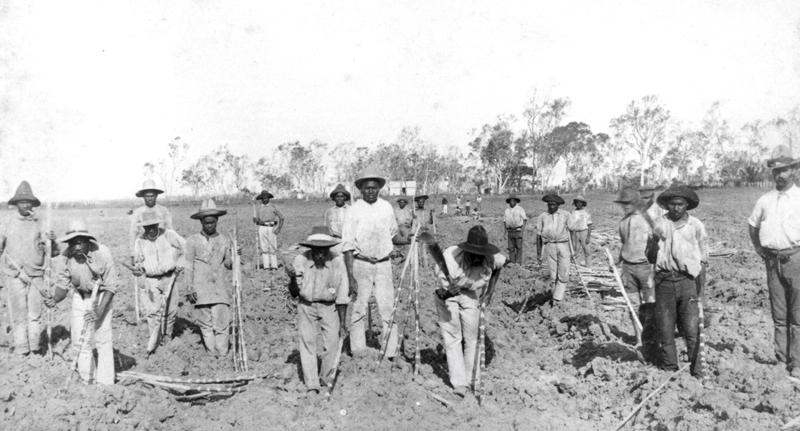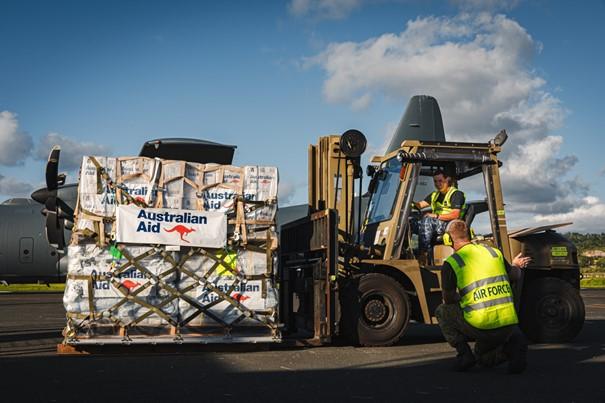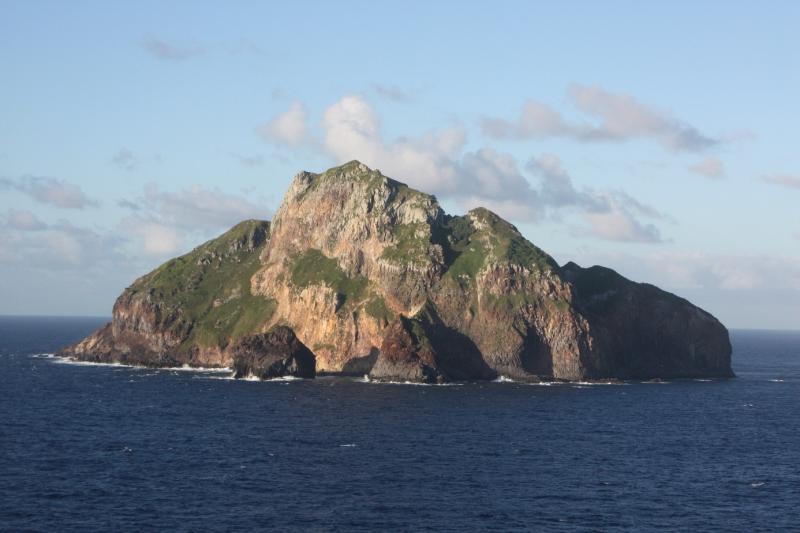Facts and figures
| Government type | Parliamentary Republic |
| Notable people |
|
The ‘Know Your Region’ series is designed to support unit and individual professional military education on the Indo-Pacific region.
On this page
- Summary
- Politics
- Diplomacy
- Australia
- France
- Indonesia
- Australia
Summary
Before Vanuatu was discovered by Europeans in 1606, the indigenous population lived as hunter gatherers, grouped in villages of approximately 50-200 people. In about 1200AD a highly stratified society had developed in central Vanuatu with the arrival of the great chief Roy Mata (or Roymata). His death was marked by an elaborate ritual that included the burying alive of one man and one woman from each of the clans under his influence.
By the 1840s Sandalwood traders had settled on the fringe islands. During the same period, more than half the male population of Vanuatu were tricked or kidnapped to work on plantations and fisheries in Australia, New Caledonia, and Fiji in a trade known as ‘blackbirding’. In Australia alone, 62,000 men were forced to work on sugar and cotton plantations in Queensland and northern NSW between 1863 and 1904. They endured horrendous living conditions and as many as 16,000 people died. While this history is not widely known in Australia, the impact is still being felt in Vanuatu today. The official language, Bislama is a form of pidgin English that was introduced when survivors returned home.

Image: Pacific Islanders planting sugar cane at Seaforth, Queensland, c. 1890s (Burdekin Shire Council Library Services/SLQ)
In 1887, to protect the interests of missionaries and plantation owners, France and Britain established basic political control of the islands with a joint naval commission. This arrangement was succeeded in 1906 by an Anglo-French condominium, where resident commissioners in the capital, Port Vila, retained responsibility over their own nationals and jointly managed the indigenous people.
Following WWII, villages began to unite in opposing their colonial rulers with land ownership being the biggest issue. Over 30 percent of land was owned at the time by foreign interests. With political pressure increasing, in 1977, France and Britain agreed to Vanuatu’s independence. Elections were held, and a constitution was drawn up in 1979. Vanuatu gained full independence on 30 July 1980.
Politics
Vanuatu is a constitutional democracy with a representative parliamentary system. The president has mostly ceremonial powers and is the head of state. He is elected for a five-year term by an electoral college that includes the presidents of Vanuatu’s six provincial governments. The prime minister is the head of government and in practice is the leader of the nation. The national Council of Chiefs, called the Malvatu Mauri, advises the government on all matters concerning Ni-Vanuatu culture and language.
Following independence, the Vanua’aku Pati (Our Land Party), headed by Father Walter Lini, formed the first parliamentary majority, with Lini as Prime Minister. Lini’s government pursued a nonaligned foreign policy, forming diplomatic ties with countries from the East and West. He was also the longest serving prime minister from 1980-1991. The mid-1990s saw a period of unstable coalition parliaments with the prime minister changing six times in as many years. In 1997, the government adopted a comprehensive reform program funded by the Asian Development Bank to improve civil services and infrastructure and attract foreign investment. This helped to stabilise the government somewhat; however, a series of natural disasters resulted in numerous setbacks. In 2015, Cyclone Pan caused widespread devastation to most of Vanuatu, particularly the capital Port Vila. The country had only just recovered from an earthquake that struck in 2002. More recently in 2023, Vanuatu faced more damage caused by several tropical cyclones and earthquakes.
Vanuatu’s leadership has changed many times over the last two decades with corruption, infighting and no confidence votes creating a tumultuous political environment. The current Prime Minster, Charlot Salwai (2024) was elected in Oct 2023 following a vote of no confidence of former Prime Minister, Sato Kilman who served for only 32 days.
On 29 May 2024, Vanuatu held its first ever national referendum. The proposed reforms required independent members of Parliament to affiliate with a major political party following elections to stop members crossing the floor. Public discontent with the political system in Vanuatu is high, and the referendum was an opportunity to appease the people and affect change. At the request of the Government of Vanuatu, Australia provided funding for the sea and air transport of ballot boxes and election officials and acted as an election observer during the vote.
Law
Vanuatu law consists of a mixture of English common law, French civil law, and indigenous customary law. Island Courts deal with minor civil and criminal cases, as well as cases pertaining to ownership of land. Magistrate's Courts may hear certain criminal and civil cases in the first instance while the Supreme Court has unlimited jurisdiction to hear and determine all civil and criminal proceedings.
For further information on Vanuatu’s politics, see the resources below:
Podcast
- Vanuatu commences referendum on political reform (Pacific Beat, 6m)
- Barriers to women’s political participation in Vanuatu (DevPolicy Blog)
- Pacific Change Makers – Vanuatu MP Gloria Julia King on women, sport, and politics (The Lowy Institute, 32m30s)
Articles
- Australian Museum – Vanuatu’s 40th Independence anniversary
- Alatoi Ishmael Kalsakau’s opportunity to write his own story – Devpolicy Blog from the Development Policy Centre
- How Kalsakau’s government fell – Devpolicy Blog from the Development Policy Centre
- Basic but essential: Vanuatu’s proposed political integrity legislation – Devpolicy Blog from the Development Policy Centre
- Good governance in Melanesia? Corruption and integrity in Vanuatu – Devpolicy Blog from the Development Policy Centre
- Thirty years of the Vanuatu Women’s Centre: her story – Devpolicy Blog from the Development Policy Centre
- Service delivery reform – lessons from Vanuatu – Devpolicy Blog from the Development Policy Centre
- When judging meets development: foreign judges on Pacific courts – Devpolicy Blog from the Development Policy Centre
Diplomacy
Vanuatu’s international image is largely based upon being one of the ‘happiest places in the world’ – twice having been ranked first (as recently as 2024) by The Happy Planet Index. The ranking is based on self-reported wellbeing scores, life expectancy, GDP per capita, and carbon footprint. Vanuatu ranked highly for its tight-knit communities, a peaceful political system, and a serious stance on environmental issues. Though prone to natural disasters, the tropical paradise is a much-loved tourism destination, especially for Australians. Like its Melanesia neighbours, Vanuatu has been able to translate increased geopolitical competition in the region into greater financial support.
Vanuatu and Australia
Vanuatu and Australia have a strong partnership based on shared values and interests in a prosperous and stable Pacific region. In 1978, Australia diplomatically supported Vanuatu’s case for independence at the UN and was among the first countries in the world to recognise the nation’s sovereignty. Australia opened a consulate in 1978, followed by a high commission in Port Vila in 1980. The Australian Defence Force sent HMAS Yarra to participate in the first independence celebrations and carried the first Prime Minster, Father Walter Lini from Port Vila to his home village in northern Pentecost.
Australia is Vanuatu's largest economic, development, security and humanitarian partner. In 2025-26 Australia’s federal budget allocated $50 million bilaterally and $85.6 million in development assistance to our partnership with Vanuatu.
Australia is working to support Vanuatu's recovery from the 17 December 2024 earthquake and successive cyclones in recent years (including tropical cyclones Judy, Kevin and Lola in 2023), including helping to build Vanuatu's resilience against future disasters, and the impacts of climate change. In response to the December 2024 Vanuatu earthquake, Australia provided AUD $22 million worth of humanitarian and recovery assistance, including the deployment of emergency medical, search and rescue teams, relief supplies, and funding to support the restoration of critical services and infrastructure. Australia continues to support the Vanuatu Government's Earthquake Recovery Plan, a comprehensive initiative designed to rebuild critical infrastructure, restore livelihoods and enhance resilience against future disasters.

Image: The Australian Defence Force, as part of a Whole-of-Government response, providing support to Vanuatu in the wake of Tropical Cyclone Lola – Source ADF
In 2022, Australia and Vanuatu signed a bilateral security agreement covering humanitarian assistance, disaster relief, law enforcement, cybersecurity, defence, border security, and maritime safety. However, a change of Vanuatu's PM stalled that pact being formally approved by the Government of Vanuatu, and it’s now been overtaken by the Vanuatu Australia Nakamal Partnership Agreement.
Nakamal Agreement
‘Nakamal’ is a Bislama word which means a traditional meeting place, such as a house, in Vanuatu. Through this framework for development cooperation, Vanuatu and Australia will jointly address critical priorities including economic and infrastructure development.
In August 2024, Deputy Prime Minister and Defence Minister Richard Marles, Foreign Minister Penny Wong and Pacific Minister Pat Conroy all travelled to Vanuatu to mark the successful conclusion of negotiations. However, Vanuatu's Prime Minister Jotham Napat revealed that “wording” around “critical infrastructure” was holding back his government’s agreement.
When signed, Australia will provide an estimated $500 million to help fund some of Vanuatu’s key climate, security and economic priorities. The agreement is unlikely to contain ‘veto’ powers (similar to those in agreements with Nauru and Tuvalu) over Vanuatu’s security arrangements.
People to people
Vanuatu is a popular tourism destination with Australian tourism contributing around 40 percent of Vanuatu’s GDP and a third of formal employment in 2024. As part of the revised Australian labour mobility scheme (2024-2027), approximately 10,000 Ni-Vanuatu will be given three-year visas to work in rural and regional areas. There are also many community-based partnerships in higher education and sport.
For further information on Vanuatu’s relationship with Australia, see the resources below:
Articles
- Australia’s partnership with Vanuatu | Australian Government Department of Foreign Affairs and Trade (dfat.gov.au)
- Vanuatu COVID-19 development response plan (dfat.gov.au)
- Friends to all: Agreement with Australia to shape Vanuatu security landscape | The Strategist
- Press conference, Port Vila, Vanuatu | Australian Minister for Foreign Affairs
International Diplomacy
France
After gaining independence in 1980, diplomatic relations between Vanuatu and France did not get off to a good start. One of the first foreign policies by Vanuatu’s first Prime Minster, Walter Lini, was to encourage the pro-independence movement in neighbouring New Caledonia. The 1980s also saw a dispute over nuclear testing in French Polynesia as well as a disagreement over ownership of two uninhabited islands Matthew and Hunter, which Vanuatu claim are within its economic zone. Fiji was also brought into the dispute by recognising the islands as belonging to France.

Image: Hunter Island – Wikimedia Commons
In 1981, Vanuatu requested compensation for a French and British successionist movement on the Island of Espiritu Santo the previous year which also caused tension after both nations delayed responding to the claim.
Relations improved slightly in 1988 when both countries made some concessions, such as visa free travel; however, it wasn’t until Lini was voted out of office and a pro-French government sworn in that the relationship normalised.
In July 2023, French President Emmanuel Macron was the first French president to visit Vanuatu since independence. He announced that the French Development Agency will reopen its office in Vanuatu to fund infrastructure and rebuild cyclone-damaged schools and hospitals. He gave updates regarding trade negotiations between New Caledonia, French Polynesia, Vanuatu and France, and promised to finally resolve the territorial border dispute over the Hunter and Matthew islands.
French Patrol boat D'Entrecasteaux visited Vanuatu in August 2023 to participate in a fisheries surveillance activity and the French Armed Forces in New Caledonia (FANC) also conducted community engineering engagement, OPERATION CASTOR, in November 2023. These engagements are a significant step forward following a lull during the COVID-19 pandemic as both nations look to re-establish closer ties.
For further information on Vanuatu’s relationship with France, see the resources below:
Articles
- Vanuatu leader hopeful of solution to island dispute with France | RNZ News
- French fury can’t be left to unwind joint Indo-Pacific work | Australian Strategic Policy Institute | ASPI
- Not one, but two new points of tension for France in the Pacific | Lowy Institute
Indonesia
Indonesia is a strategically significant partner for Vanuatu given its leadership role in ASEAN and the Indo-Pacific. Indonesia also became an Associate Member of the Melanesian Spearhead Group in 2015. However, the bilateral relationship is fraught due to Vanuatu’s support for West Papua independence based on a shared Melanesian identity. Indonesia maintains that the people of Papua had “once and for all reaffirmed the country as an irrevocable part of Indonesia” referring to a 1969 UN resolution where just over 1000 people cast their vote. However, many West Papuans believe that Indonesia illegally annexed the territory, and a separatist insurgency has run for decades.
In 2023, then-Deputy Prime Minister/Foreign Minister, Jotham Napat, visited Indonesia, which was the first visit by a Ni-Vanuatu Foreign Minister in over a decade. In a statement from the visit, Vanuatu confirmed plans to open an embassy in Indonesia and set up a sister province program with Papua province.
In 2023, Indonesia renovated the VIP lounge at Port Vila’s Bauerfield Airport that cost an estimated AUD1.3 million. The lounge was damaged during the twin tropical cyclones Judy and Kevin. Despite positive relations with Indonesia, Vanuatu is still expected to maintain support for West Papua’s claim for independence.
For further information on Vanuatu’s relationship with Indonesia, see the resources below:
Articles
- West Papua: The Issue That Won't Go Away for Melanesia (lowyinstitute.org)
- Vanuatu Daily Post Exclusive: Indonesian Gov’t says West Papua has never been colonised, reveals an increase in Indonesia-Vanuatu trade since 2022 | News | dailypost.vu
- Indonesia creates new committee on Papua after talks with Vanuatu | RNZ News
- Vanuatu: Indonesian official attempts to bribe RNZ journalist – IFJ
- Melanesian leaders group decides West Papua independence body does not meet 'existing criteria' to join – ABC News
China See Hot Topic
International Forums
Vanuatu is a member of many regional and international bodies, including the Pacific Islands Forum, the Pacific Community, the Melanesian Spearhead Group, the United Nations, the World Trade Organisation, the International Monetary Fund, the World Bank, and the International Whaling Commission.
International agencies include the Asian Development Bank, the World Bank, United Nations High Commissioner for Refugees, UNICEF, United Nations Development Programme and World Health Organisation also have offices in Port Vila.
Australia, France, Germany, the United Kingdom, New Zealand, Japan, and the People’s Republic of China have diplomatic representatives in Port Vila. Austria, Belgium, Finland, Italy and Sweden have resident honorary consuls. Vanuatu only has twelve diplomatic missions abroad.
For further reading on Vanuatu’s involvement in international forums, see the resources below:
Articles
Know your region
Know Your Region series gives you a shortcut to understanding other nations in the Indo-Pacific region.









